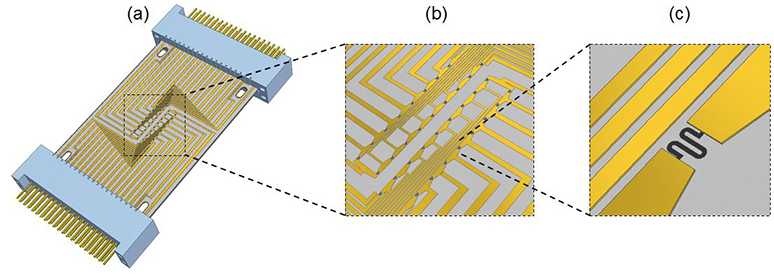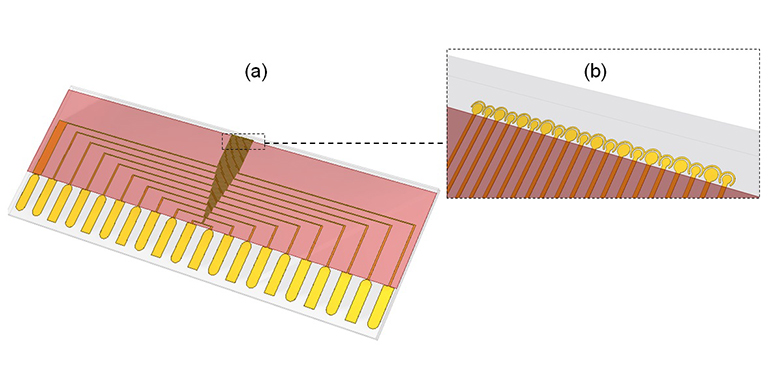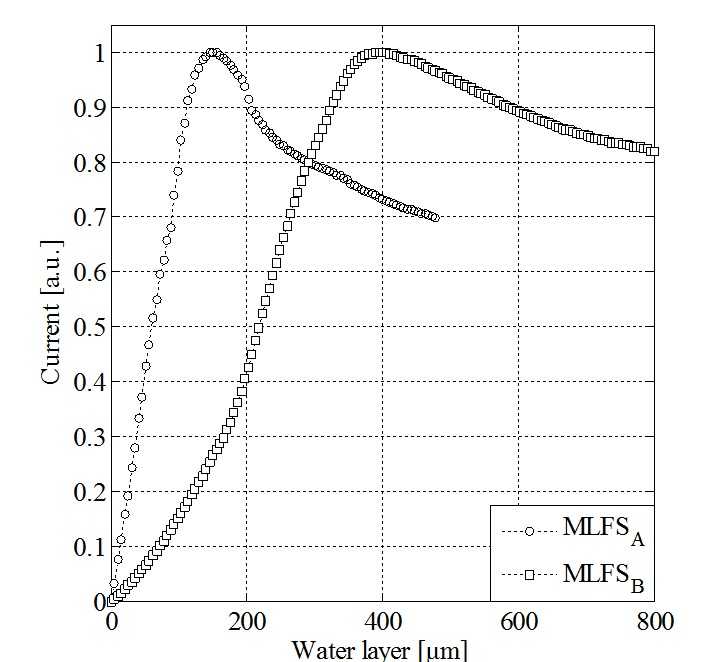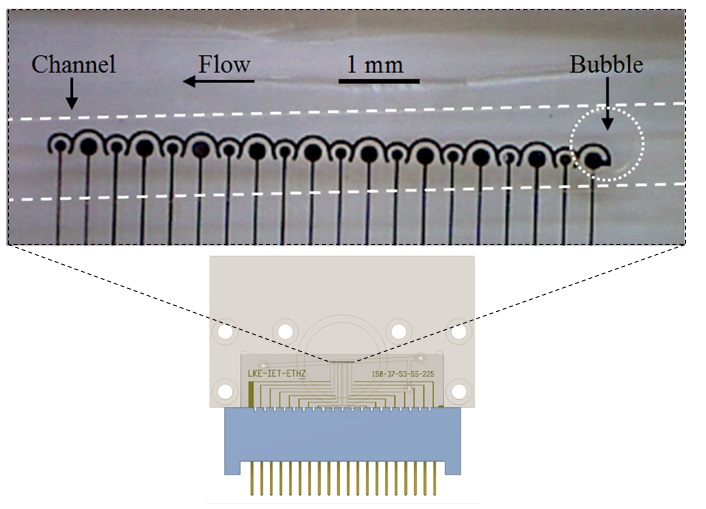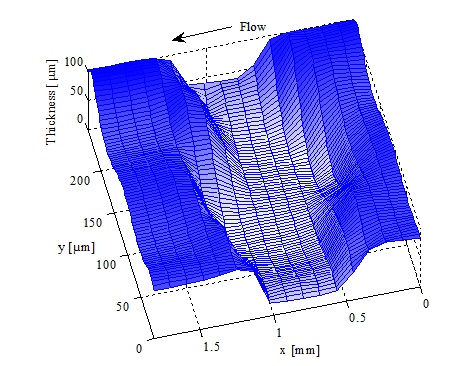Microscale Boiling
The flow in microchannels has the characteristics of high heat and mass transfer. Therefore, it is expected to apply to micro heat exchanger, cooling of semiconductor and micro chemical reactor. Most of the research has focused on the image processing.
The aim of this study is the clarification of two-phase flow in microchannels by using a micro film sensor based on a conductance measurement. A family of miniaturized liquid film sensor, has been developed with photolithographic technique. These devices are able to measure liquid thickness that ranges from 0 up to 400 µm, with a current resolution of 5.2 µm (see Fig. 2).
Conductive water flows in a channel (see Fig. 3, 100µm high and 2 mm wide), air is injected from the upstream of the measurement area. The inclined arrangement allows, not only liquid thickness measurements and the calculation of bubble velocity, but in addition the reconstruction of the lower shape of the bubble (see Fig. 4).
The aim of the project is to integrated this know-how with the in-house technology used to produce temperature sensors.
Keywords:
micro boiling, liquid thickness, two-phase flow, temperature sensor, heat flux measurement
